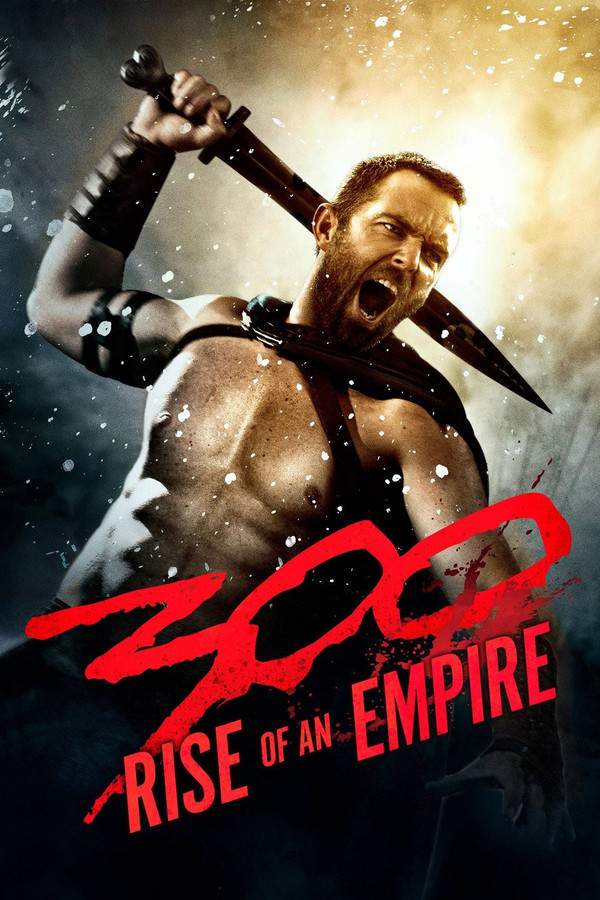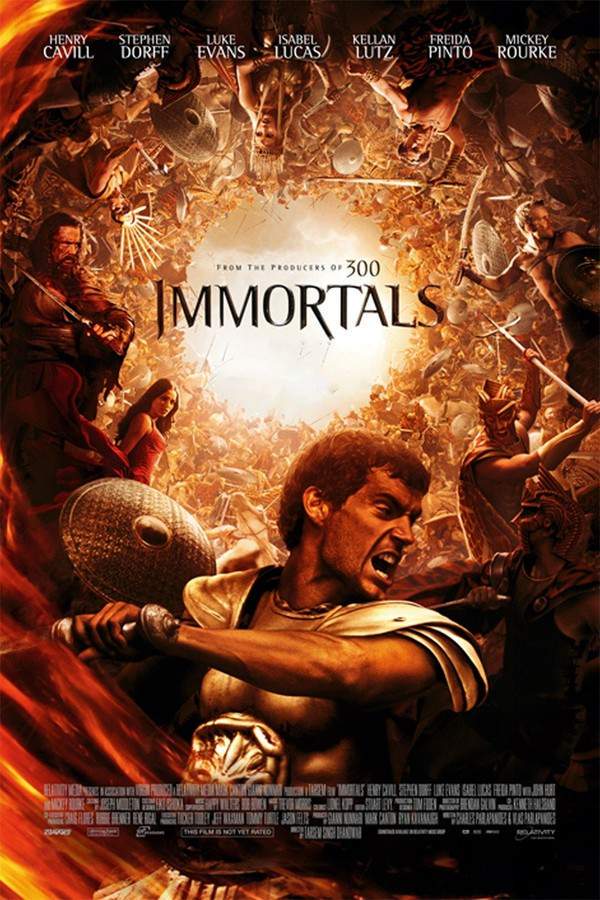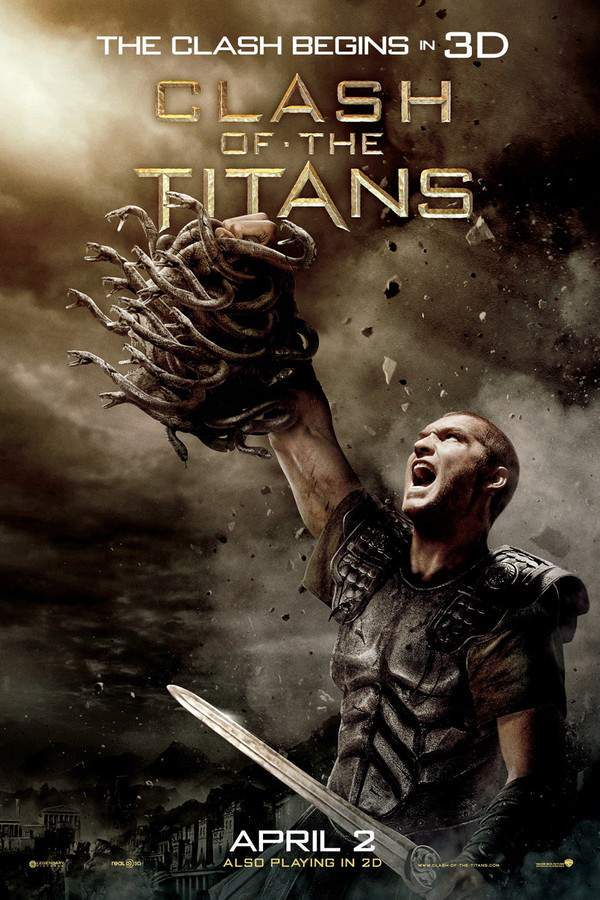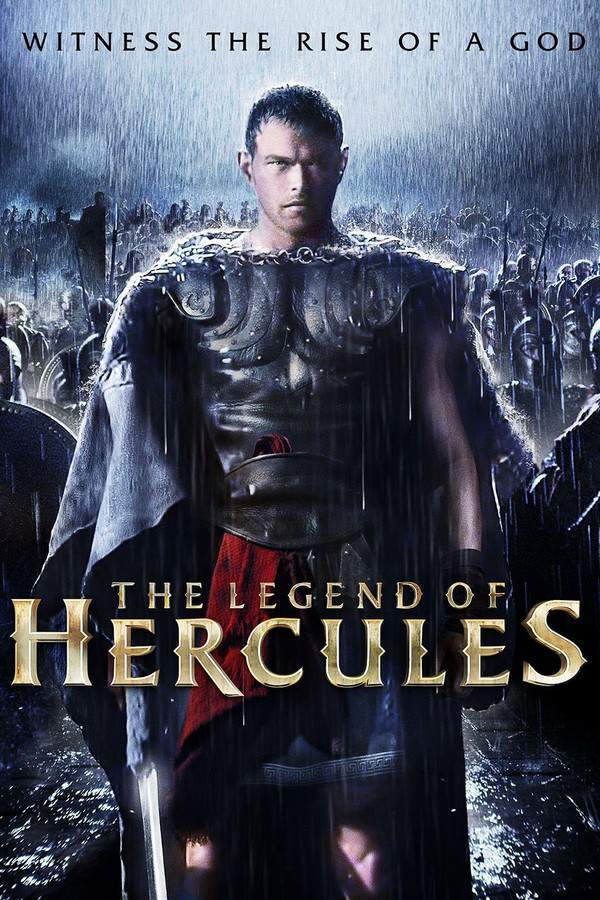
300: Rise of an Empire 2014
Directed by

Noam Murro
Made by

Warner Bros. Pictures
Test your knowledge of 300: Rise of an Empire with our quiz!
300: Rise of an Empire Plot Summary
Read the complete plot summary and ending explained for 300: Rise of an Empire (2014). From turning points to emotional moments, uncover what really happened and why it matters.
Queen Gorgo, the brave wife of Leonidas, recounts the epic Battle of Marathon to her soldiers. This pivotal confrontation marked the demise of King Darius I of Persia at the hands of General Themistocles from Athens. Darius was incensed by the idea of Greek independence and initiated an attack on Marathon ten years prior, igniting the long-lasting conflict between Greece and Persia.
Despite being heavily outnumbered—three Persian warriors for every Greek hero—Themistocles launched an audacious surprise assault, catching the Persian forces off-guard after their arduous month at sea. His decisive shot found Darius, striking him straight in the heart.
The shocking event profoundly affected Darius’ son, Xerxes, who, witnessing his father’s final moments, receives counsel to end the hostilities, as “only the gods could defeat the Greeks.” Dying, Darius implores Xerxes to not follow in his footsteps, emphasizing that true defeat lies in divine intervention. However, his finest naval commander, Artemisia, interprets Darius’ last words as a challenge, propelling Xerxes on a treacherous journey through the desert. There, in a mystical cave, he bathes in an enigmatic substance, emerging transformed into the formidable “God-King.”
Upon returning to Persia, Xerxes vows vengeance upon Greece. As his forces march toward Thermopylae, Themistocles persuades the council to fund a naval fleet for combat. He seeks the support of Leonidas but learns from Dilios that Leonidas is consulting the Oracle, and Gorgo hesitates to ally with Athens, revealing the division among the Greeks.
Leading the land assault is Xerxes, while Artemisia commands the naval attack. Themistocles reconnects with his former ally, Scyllas, who has infiltrated the Persian ranks and uncovers Artemisia’s dark past. Born a Greek, her family fell victim to the brutality of Greek soldiers, which led her to become a naval commander for the Persians, fueled by a desire for vengeance.
As the military currents blend, Themistocles prepares to confront Artemisia on the high seas while Leonidas faces Xerxes among the cliffs of Thermopylae. Under Themistocles’ leadership, the Greeks engage in strategic maneuvers, expertly striking the Persian vessels through calculated attacks that exploit their weaknesses. The next day, during an elaborate feigned retreat, they lead the Persian fleet into a cunning trap amongst the rocky crevices.
Impressed by his tactical brilliance, Artemisia invites Themistocles aboard her ship, revealing the overwhelming odds against him. Armed with confidence, she attempts to seduce him, aiming to convert him into her second-in-command, but he staunchly refuses. Artemisia’s fury is ignited, promising revenge upon Themistocles for his rejection.
In the fury of battle, the Persians unleash devastating tactics, spilling tar to create chaos on the water. Despite the inferno that erupts, Themistocles’ resolve remains unshaken; through sheer will, he manages to kill one of the assailants, triggering a catastrophic explosion that spells doom for both sides. Amidst the chaos, Themistocles is thrown overboard but is saved by Calisto, who finds him as Scyllas succumbs to his injuries, leaving Themistocles believing his efforts might have been futile.
In dire need of reinforcements, Themistocles discovers the tragic fate of Leonidas and his small band of warriors, returning to Athens only to confront the regretful traitor, Ephialtes. Choosing not to end his life, Themistocles spares Ephialtes so he can alert Xerxes to the gathering Greek forces at Salamis. He then implores Gorgo for support, but her grief for Leonidas renders her unable to assist. He returns Leonidas’ sword to her, urging her to seek vengeance for her fallen king.
With the Persian army descending upon Athens, Ephialtes delivers Themistocles’ urgent message to Xerxes, igniting a fierce battle between the Greek and Persian fleets. In the thick of the turmoil, Themistocles and Artemisia clash, leading to a brutal stalemate where both suffer injuries.
As Gorgo narrates the conflict to her Spartan forces, she rallies them alongside fellow Greek allies, overpowering the Persians. Themistocles makes a final plea for Artemisia to surrender, but she becomes ferociously intent on killing him, climaxing in a tragic confrontation where she is fatally wounded. In her last moments, she sees Xerxes abandon her cause.
Amidst the frenzy, Themistocles and Gorgo exchange a resolute glance of solidarity as they prepare to charge alongside their men against the relentless tides of the Persian forces, setting the stage for a legendary showdown.
300: Rise of an Empire Timeline
Follow the complete movie timeline of 300: Rise of an Empire (2014) with every major event in chronological order. Great for understanding complex plots and story progression.
The Battle of Marathon
Queen Gorgo recounts the pivotal Battle of Marathon to her soldiers. This confrontation marks the demise of King Darius I of Persia at the hands of General Themistocles, symbolizing the beginning of the long-lasting conflict between Greece and Persia.
Darius's Attack
King Darius, furious over the idea of Greek independence, initiates a surprise attack on Marathon with his vast forces. Despite being heavily outnumbered, the Greek heroes stand firm against tyranny.
Themistocles' Surprise Assault
General Themistocles leads an audacious surprise assault on the Persian forces after their month-long journey at sea. His decisive shot striking Darius in the heart turns the tide of the battle.
Xerxes' Transformation
The death of Darius profoundly impacts his son, Xerxes, who, advised by his counselor, embarks on a journey of vengeance. In a mystical cave, he bathes in an enigmatic substance, transforming him into the formidable 'God-King.'
Xerxes Vows Revenge
Returning to Persia, Xerxes vows to avenge his father's death and march towards Greece. His forces prepare to unleash their might upon the land as tensions rise between the two factions.
Themistocles' Naval Fleet Appeal
Themistocles, recognizing the impending threat, persuades the council to fund a naval fleet for combat against the advancing Persian forces. He reaches out to Leonidas for support but faces hesitation.
Artemisia's Backstory
Themistocles reconnects with Scyllas, who reveals the dark past of Artemisia. Once a Greek, her family's demise at the hands of her own people fuels her allegiance to the Persians as their naval commander.
Battle Preparations
As the Greek forces prepare for battle, Themistocles meticulously strategizes to take on Artemisia on the high seas, while Leonidas faces Xerxes amidst the rugged cliffs of Thermopylae.
The Persian Assault
The Persian forces unleash devastating tactics, including spilling tar to confuse the Greek navy. Amid the chaos, Themistocles proves his worth by sinking one of the Persian ships, leading to an explosion.
Themistocles' Resilience
After being thrown overboard amidst the chaos, Themistocles is rescued by Calisto. He learns of Scyllas' injuries and contemplates the cost of their conflict, questioning whether their resistance is futile.
Ephialtes' Betrayal
In dire need of reinforcements, Themistocles discovers the tragic fate of Leonidas and his warriors. He chooses to spare the traitor Ephialtes, hoping to use him to warn the Persians about the Greeks' strategic gatherings.
The Climactic Battle
With the Persian army closing in on Athens, the battle between the Greek and Persian fleets ignites. Themistocles and Artemisia engage in a brutal confrontation, sustaining injuries on both sides.
Gorgo's Resolve
As the overwhelming struggle unfolds, Gorgo rallies the Spartan forces alongside their allies. Their combined strength leads to a formidable counterattack against the Persian forces, embodying unity amid chaos.
The Final Showdown
Themistocles faces Artemisia one last time, where their vendetta culminates in a deadly confrontation. As she breathes her last, she witnesses Xerxes abandoning her cause, sealing her fate.
United for Vengeance
In the ultimate moments of battle, Themistocles and Gorgo share a resolute glance. They prepare to lead their men against the Persian forces, setting the stage for a legendary showdown in their quest for freedom.
300: Rise of an Empire Characters
Explore all characters from 300: Rise of an Empire (2014). Get detailed profiles with their roles, arcs, and key relationships explained.
Gorgo (Lena Headey)
Gorgo is a fierce and resilient warrior queen, motivated by her love for Leonidas and her desire for Greek independence. She displays a strong sense of duty, inspiring her soldiers through poignant reflections on loss and sacrifice. Her internal struggle emphasizes the emotional burden of leadership amid war.
Themistocles (Sullivan Stapleton)
Themistocles is a cunning and tactical Athenian general, determined to unite the Greeks against the Persian threat. His bravery and quick thinking are showcased in strategic naval battles, revealing his deeper motivations rooted in honor and legacy. He embodies the struggle between personal ambition and the greater good.
Artemisia (Eva Green)
Artemisia is a formidable naval commander driven by a thirst for vengeance against the Greeks, shaped by her tragic past. Her intelligence and ruthless strategies make her a significant adversary. She is portrayed as a complex character torn between loyalty to Xerxes and personal vendettas.
Xerxes (Rodrigo Santoro)
Xerxes embodies the ambition and arrogance of Persian royalty, driven to conquer Greece following his father's demise. His transformation into the 'God-King' represents the loss of humanity to power. Xerxes' reliance on Artemisia and his decisions reflect the complexities of leadership in a time of war.
300: Rise of an Empire Settings
Learn where and when 300: Rise of an Empire (2014) takes place. Explore the film’s settings, era, and how they shape the narrative.
Time period
5th Century BC
The 5th Century BC was a period of significant conflict between Greece and Persia, following Darius I's initial attacks. This era saw the rise of powerful city-states in Greece, fueled by a strong sense of independence and unity among Greek forces. It is also marked by the emergence of legendary figures like Themistocles and Xerxes amidst the backdrop of warfare.
Location
Marathon, Thermopylae, Athens, Persia
Marathon is an iconic site known for its legendary battle between the Greeks and Persians. Thermopylae served as a pivotal battleground marked by heroism and sacrifice. Athens, the birthplace of democracy, plays a crucial role in rallying Greek forces, while Persia represents the vast empire attempting to assert dominance over the Greek city-states.
300: Rise of an Empire Themes
Discover the main themes in 300: Rise of an Empire (2014). Analyze the deeper meanings, emotional layers, and social commentary behind the film.
⚔️
War
The theme of war is central to the narrative, depicting the fierce and brutal clashes between Greek heroes and Persian forces. The film illustrates the strategies, sacrifices, and the impact of war on both individuals and nations. It also reflects the complexities of allegiance and the consequences of vengeance.
💔
Loss
Loss permeates the story as characters mourn fallen comrades and kings. Queen Gorgo's grief for Leonidas illustrates the emotional toll of war, while Themistocles faces personal sacrifices amid grand struggles. This theme resonates through actions driven by vengeance stemming from profound personal losses.
👑
Leadership
Leadership is explored through characters like Themistocles and Gorgo, showcasing their resolve to unite their people against a common enemy. Their strategic decisions, emotional burdens, and the weight of command highlight the complexities of leading in times of crisis. The theme reveals both the strength and vulnerabilities of those in power.

Coming soon on iOS and Android
The Plot Explained Mobile App
From blockbusters to hidden gems — dive into movie stories anytime, anywhere. Save your favorites, discover plots faster, and never miss a twist again.
Sign up to be the first to know when we launch. Your email stays private — always.
300: Rise of an Empire Spoiler-Free Summary
Discover the spoiler-free summary of 300: Rise of an Empire (2014). Get a concise overview without any spoilers.
In the wake of a legendary stand at Thermopylae, the ancient world of Greece brims with restless seas and uncertain alliances. The sun‑scorched coastline becomes a chessboard of marble citadels and sprawling harbors, each city‑state clutching its own pride while a distant empire casts a shadow over the Aegean. The film’s tone blends the stark grandeur of classic epics with a kinetic, almost mythic rhythm, inviting viewers to feel both the weight of history and the immediacy of a looming clash.
At the heart of this swirling turmoil is Themistocles, a charismatic Athenian commander whose vision for a unified naval force pits him against the fragmented loyalties of his fellow Greeks. His drive to rally the disparate poleis is matched only by the allure of his political acumen, setting up a delicate dance between diplomacy and war‑making. Opposing him across the water are the formidable Xerxes, heir to a mighty throne, and the cunning Artemisia, a commander whose reputation for skill and strategy precedes her. Their presence adds a layer of sophisticated tension, hinting at an encounter where intellect may prove as decisive as swords.
The film also weaves in the stoic strength of Leonidas, whose legacy looms large over the battlefield, and the fierce resolve of Gorgo, whose perspective offers both personal and national stakes. Their interactions with Themistocles highlight the fragile balance between honor, duty, and the desire for survival. Together, these figures inhabit a world where every coastline, every wind‑filled sail, and every whispered council could tip the scales toward triumph or oblivion.
Against this backdrop of glittering ships and storm‑tossed horizons, the story promises a sweeping saga of ambition, loyalty, and the timeless quest to defend a way of life. The atmosphere is charged with anticipation, leaving the audience eager to see how these towering personalities will navigate the tides of destiny that surge ever closer.
Can’t find your movie? Request a summary here.
Movies with Similar Twists and Themes
Uncover films that echo the narrative beats, emotional arcs, or dramatic twists of the one you're exploring. These recommendations are handpicked based on story depth, thematic resonance, and spoiler-worthy moments — perfect for fans who crave more of the same intrigue.
Featured on this page

What's After the Movie?
Not sure whether to stay after the credits? Find out!
Explore Our Movie Platform
New Movie Releases (2025)
Famous Movie Actors
Top Film Production Studios
Movie Plot Summaries & Endings
Major Movie Awards & Winners
Best Concert Films & Music Documentaries
Movie Collections and Curated Lists
© 2025 What's After the Movie. All rights reserved.














